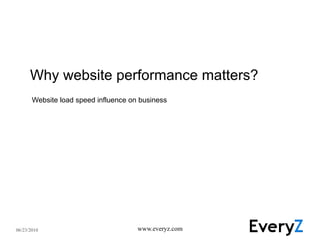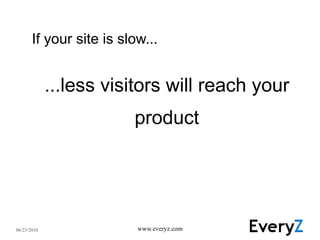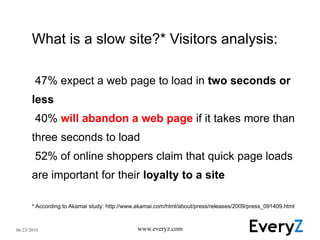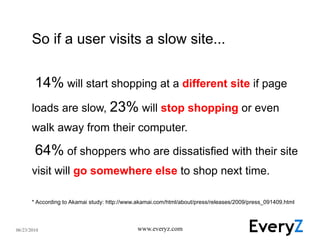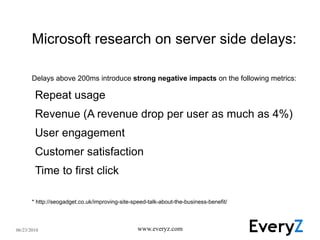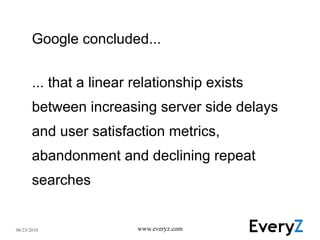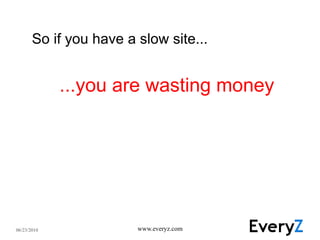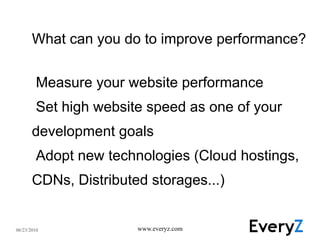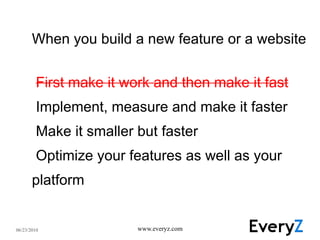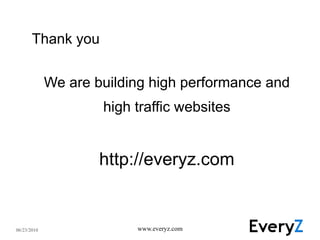Website performance
- 1. Why website performance matters? Website load speed influence on business
- 2. What is website performance? It is how quickly your visitors will get your information
- 3. If your site is slow... ...less visitors will reach your product
- 4. What is a slow site?* Visitors analysis: 47% expect a web page to load in two seconds or less
- 5. 40% will abandon a web page if it takes more than three seconds to load
- 6. 52% of online shoppers claim that quick page loads are important for their loyalty to a site
- 7. * According to Akamai study: http://www.akamai.com/html/about/press/releases/2009/press_091409.html
- 8. So if a user visits a slow site... 14% will start shopping at a different site if page loads are slow, 23% will stop shopping or even walk away from their computer.
- 9. 64% of shoppers who are dissatisfied with their site visit will go somewhere else to shop next time.
- 10. * According to Akamai study: http://www.akamai.com/html/about/press/releases/2009/press_091409.html
- 11. Microsoft research on server side delays: Delays above 200ms introduce strong negative impacts on the following metrics: Repeat usage
- 12. Revenue (A revenue drop per user as much as 4%)
- 13. User engagement
- 15. Time to first click
- 17. Google concluded... ... that a linear relationship exists between increasing server side delays and user satisfaction metrics, abandonment and declining repeat searches
- 18. So if you have a slow site... ...you are wasting money
- 19. What can you do to improve performance? Measure your website performance
- 20. Set high website speed as one of your development goals
- 21. Adopt new technologies (Cloud hostings, CDNs, Distributed storages...)
- 22. When you build a new feature or a website First make it work and then make it fast
- 23. Implement, measure and make it faster
- 24. Make it smaller but faster
- 25. Optimize your features as well as your platform
- 26. Serve all your users You will need to scale one day
- 27. So plan for scale and be prepared to handle it once required
- 28. Thank you We are building high performance and high traffic websites http://everyz.com

